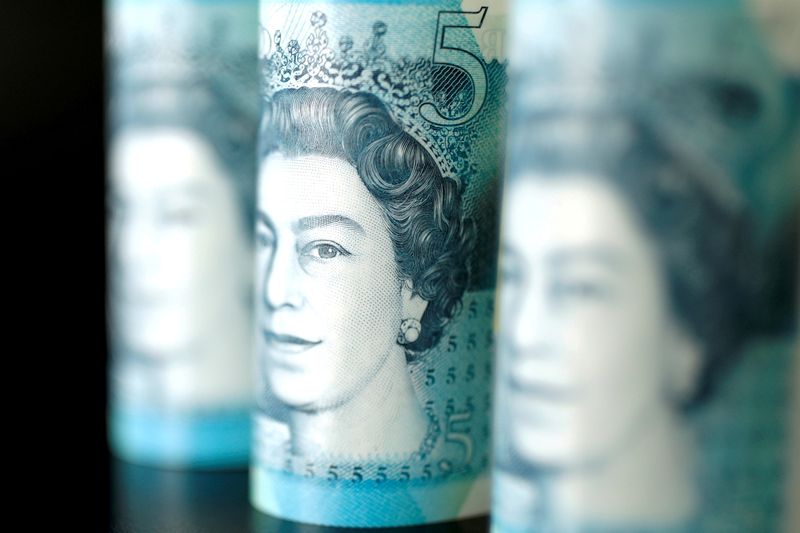By Elizabeth Howcroft
LONDON (Reuters) -Sterling rose on Friday and was set for its biggest weekly gain against both the dollar and the euro since May, boosted by a combination of dollar weakness and expectations that the Bank of England will raise rates this year.
The dollar was heading for a weekly decline and the Japanese yen sunk to a three-year low, as global risk appetite rebounded.
At 1515 GMT, the pound was up 0.6% against the dollar at $1.3759, having hit its highest in a month and on track for its biggest weekly gain since May.
It was also up around 0.6% versus the euro, having touched its strongest level since February 2020 at 84.275 pence per euro.
Against the yen, the pound rose to its highest since 2016.
Simon Harvey, senior FX analyst at Monex Europe, said that the move in sterling was prompted by dollar weakness and investors covering their dollar short positions.
Expectations that the Bank of England will raise rates this year have also been cited by some analysts as a factor supporting the pound.
The pound jumped against the dollar on Monday after BoE Governor Andrew Bailey stressed the need to prevent inflation from becoming permanently embedded and fellow policymaker Michael Saunders said households must brace for "significantly earlier" interest rate rises.
But on Thursday, two other policymakers - Catherine Mann and Silvana Tenreyro - made more dovish remarks, pushing back against the idea of raising rates.
ING FX strategists said that the dovish comments did not significantly affect the market's expectations for a rate rise.
"Looking beyond today's price action, we still think sterling may have to give up some of its recent gains as our economist expects the BoE to underdeliver on monetary tightening," ING said in a client note.
ING also said that the pound was "complacent" in the face of new Brexit-related frictions between the UK and the European Union.
UK Prime Minister Boris Johnson signed up to the "Northern Ireland protocol" as part of his Brexit agreement in 2020 but has since argued it was agreed in haste and was no longer working for the people of Northern Ireland.
On Wednesday, the EU offered Britain a package of measures to ease the transit of goods to the province, but British Brexit Minister David Frost said that the proposals were not enough.

"This EU proposal appears to have removed the near-term prospect of an escalation that could have fuelled imminent selling of the pound in the markets," wrote MUFG head of research Derek Halpenny in a client note.
"We doubt the pound will get much lift from this latest Brexit issue until there is a sense of progress in the negotiations over the coming weeks."